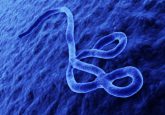Significant differences in immune parameters seen in manic bipolar patients reveal potential biomarkers

Immune system dysregulation has previously been linked with pathophysiologic changes of the central nervous system. These changes may lead to the development of or exacerbation of serious neuropsychiatric conditions, such as bipolar disorder.
A study, recently published in Neuropsychiatric Disease and Treatment, supports this research, implicating abnormal immune activity with systemic inflammation in bipolar patients.
Platelet activation may be indicative of biochemical changes in the brain associated with various neuropsychiatric conditions. In this study, mean platelet volume, a measure of platelet function, was determined for 132 patients diagnosed with bipolar disorder and compared with levels in 135 age- and sex-matched healthy control individuals. The analysis included only patients experiencing a manic episode during admission.
Peripheral venous blood samples were used to measure various hemogram values. Significant differences were seen in mean white blood cell count as well as the median NLR (the ratio of the absolute neutrophil-to-lymphocyte counts), PLR (the ratio of the absolute platelet-to-lymphocyte counts) neutrophil, lymphocyte, mean platelet volume, and platelet hematocrit.
The mean count and median values of the above parameters were found to be significantly greater in bipolar patients that in control participants. However, hemoglobin was found to be significantly lower in patients compared with controls.
These data support the theory that bipolar patients in a manic episode show abnormal immune system function and “the development of new preventive and therapeutic options can be expedited through the understanding of this mechanism because it is through this mechanism that inflammation may pathologically affect brain function and thereby induce and/or perpetuate bipolar disorder,” the authors concluded.
Source: Mert DG, Terzi H. Mean platelet volume in bipolar disorder: the search for an ideal biomarker. Neuropsychiatr. Dis. Treat. 12, 2057–2062 (2016);
www.psychiatryadvisor.com/bipolar-disorder/immune-biomarkers-identified-in-bipolar-disorder/article/521269/






